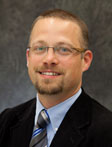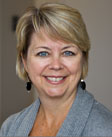UC Davis Launches Research Core Facilities Program

The Office of Research has established a multiyear, multimillion-dollar program to oversee and strengthen the core research infrastructure and research services at UC Davis.
The Research Core Facilities Program will provide direct financial support and strategic guidance to ensure state-of-the-art research services are provided in a cost-efficient manner. Core facilities play an instrumental role in enabling and advancing the research mission by providing shared resources including technologies, equipment, services and expert consultation. Access to these resources extends beyond the university, fostering collaborations with institutions around the world as well as private industry and local startups.
The program was developed in response to a faculty-driven committee report that highlighted the need for strategic funding and oversight of laboratories providing research services, which have grown organically to include over 170 facilities across the campus. “As one of the top 10 public research universities in the nation, and one of the fastest growing in terms of research funding in the UC system over the last two decades, UC Davis recognizes the importance of strategically building research infrastructure to ensure continued success,” said Harris Lewin, vice chancellor for research. “We believe that it is critical for our faculty to have access to the newest technologies to allow them to make breakthrough discoveries that address the world’s most difficult problems.”
The mission of the program is to enable researchers at UC Davis to have access to the state-of-the-art technology for their scientific research, to streamline the core facility administration while improving accountability and transparency, and to provide training opportunities for faculty, graduate students and staff.
The initial objectives are to:
- Develop a strategic plan and viable business models to ensure that core facilities are scientifically and technologically competitive, cost-efficient and sustainable.
- Utilize funds for investing in new instrumentation, staff and management tools, with the goal of enhancing core facility services and capabilities in alignment with emerging opportunities.
- Improve the visibility of and accessibility to core facilities through the creation of a dynamic web portal that provides a live inventory database with information about research capabilities, points of contact and exemplary case studies.
Klaus van Benthem, an associate professor in the Department of Chemical Engineering & Materials Science, has been appointed director of the program, a new position within the Office of Research. Van Benthem has extensive experience in the operation and administration of large-scale multi-user instrumentation facilities from his research activities in the field of aberration-corrected transmission electron microscopy and his engagement in several U.S. Department of Energy user facilities. In his new role, he will develop and implement a strategic plan to establish a robust and sustainable research infrastructure that better serves the campus. He will work collaboratively with the vice chancellor for research, a Faculty Research Advisory Council, core facility directors, and the newly appointed associate director of the program, Julie Auger, who joined the team from a similar position at the University of California, San Francisco.
“Core facilities provide the foundation for interdisciplinary research,” said van Benthem. “We have a great opportunity to transform how we share resources in a way that reduces administrative burden, improves collaboration and provides the cutting-edge technologies needed to be a global leader in research.”
More on the Program Leadership
Klaus van Benthem, Faculty Director Research Core Facilities Program
 Klaus van Benthem is an associate professor in the Department of Chemical Engineering & Materials Science at UC Davis. He holds a leadership role in the Advanced Materials Characterization & Testing Laboratory facility, where he most recently spearheaded a $10 million National Science Foundation proposal to form a Materials Innovation Platform in the area of additive manufacturing. He has actively pursued instrument acquisition through federal grants, including the National Science Foundation Major Research Instrumentation Program and the Department of Defense University Research Instrumentation Program. He has secured funding for several scanning electron microscope and transmission electron microscope sample stages and a focused ion beam instrument. Van Benthem received his doctoral degree from the Max-Planck Institute for Metals Research at the University of Stuttgart in Germany and has worked in several national laboratories. His research centers on the mechanistic understanding of materials processing. He uses a wide range of advanced (in situ) electron microscopy techniques for the atomic-resolution investigation of functional nano-materials and their defect evolution under externally applied stress fields. Through his research, he has extensive experience in using and administrating a variety of large-scale instruments including scanning and transmission electron microscopes.
Klaus van Benthem is an associate professor in the Department of Chemical Engineering & Materials Science at UC Davis. He holds a leadership role in the Advanced Materials Characterization & Testing Laboratory facility, where he most recently spearheaded a $10 million National Science Foundation proposal to form a Materials Innovation Platform in the area of additive manufacturing. He has actively pursued instrument acquisition through federal grants, including the National Science Foundation Major Research Instrumentation Program and the Department of Defense University Research Instrumentation Program. He has secured funding for several scanning electron microscope and transmission electron microscope sample stages and a focused ion beam instrument. Van Benthem received his doctoral degree from the Max-Planck Institute for Metals Research at the University of Stuttgart in Germany and has worked in several national laboratories. His research centers on the mechanistic understanding of materials processing. He uses a wide range of advanced (in situ) electron microscopy techniques for the atomic-resolution investigation of functional nano-materials and their defect evolution under externally applied stress fields. Through his research, he has extensive experience in using and administrating a variety of large-scale instruments including scanning and transmission electron microscopes.
Julie Auger, associate director of Research Core Facilities Program
 Julie Auger joins van Benthem as part of the leadership team, reporting to Harris Lewin within the Office of Research. She brings a wealth of experience and record of achievement in the operation and administration of multi-technology, multi-disciplinary academic research units. In addition to developing and managing shared research facilities in flow cytometry, monoclonal antibody production and immunohistochemistry, she has served as the institutional official responsible for the development of central administrative programs focused on cores at the University of Chicago and UC San Francisco. She has served as a reviewer at the National Institutes of Health Shared Instrumentation Grant Program, on the council of the International Society for Advancement of Cytometry, and currently serves as the co-chair of the Core Administrator Network of the Association of Biomolecular Research Facilities.
Julie Auger joins van Benthem as part of the leadership team, reporting to Harris Lewin within the Office of Research. She brings a wealth of experience and record of achievement in the operation and administration of multi-technology, multi-disciplinary academic research units. In addition to developing and managing shared research facilities in flow cytometry, monoclonal antibody production and immunohistochemistry, she has served as the institutional official responsible for the development of central administrative programs focused on cores at the University of Chicago and UC San Francisco. She has served as a reviewer at the National Institutes of Health Shared Instrumentation Grant Program, on the council of the International Society for Advancement of Cytometry, and currently serves as the co-chair of the Core Administrator Network of the Association of Biomolecular Research Facilities.

